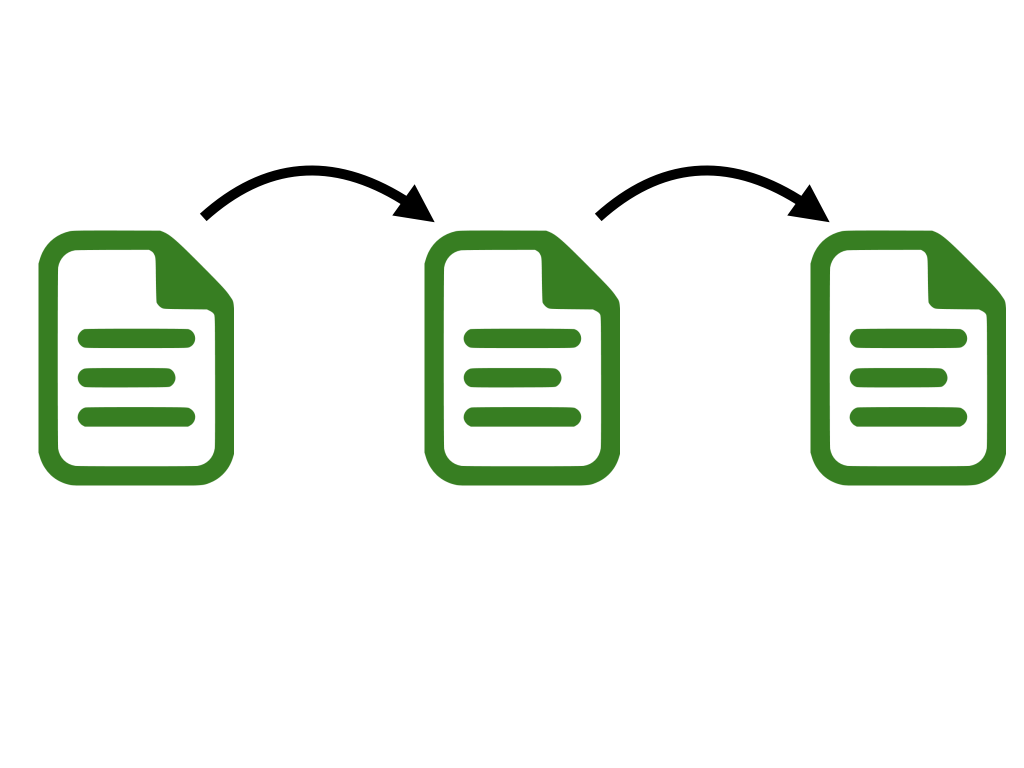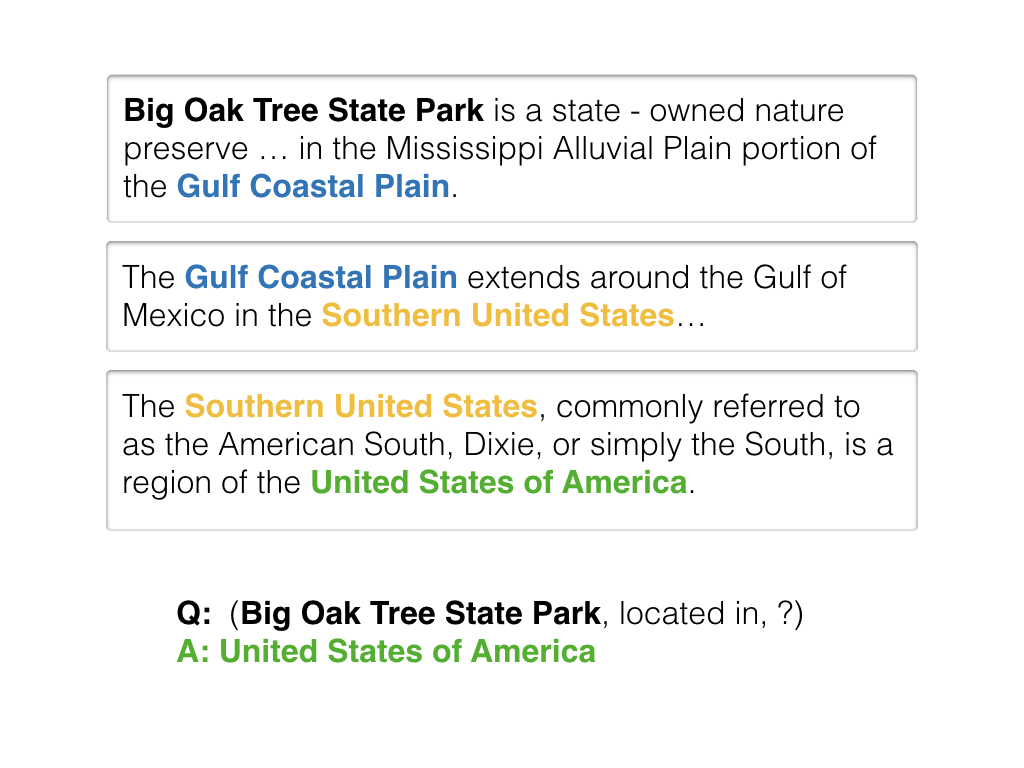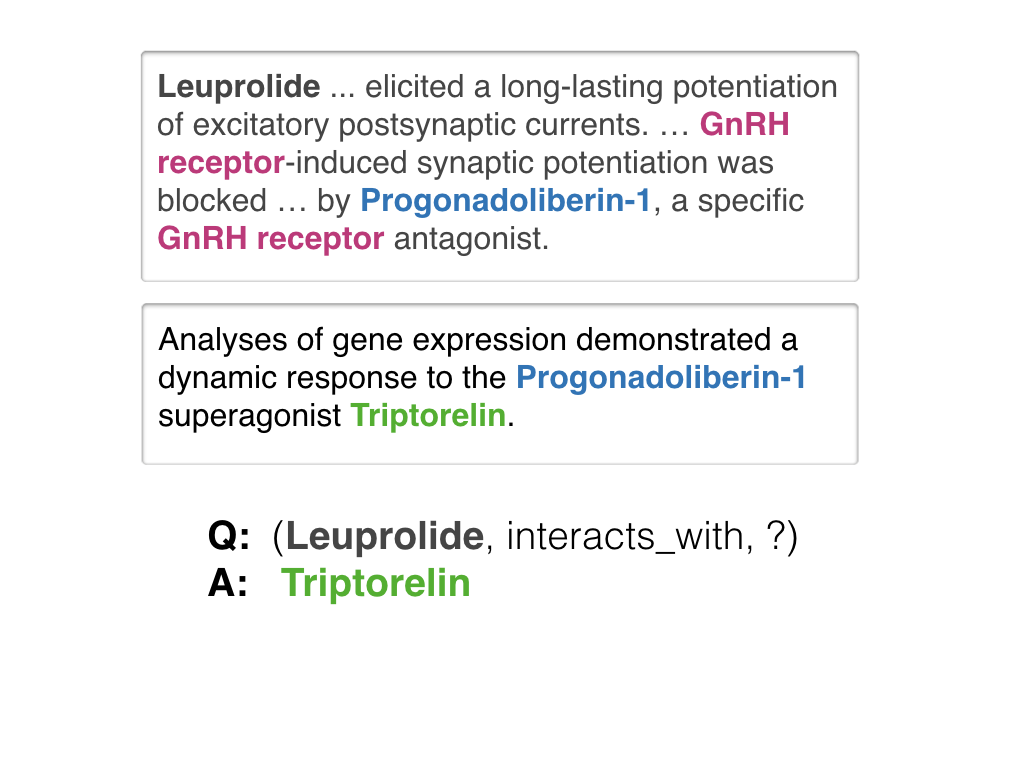Two New Reading Comprehension Datasets
We have created two new Reading Comprehension datasets focussing on multi-hop (alias multi-step) inference.
Several pieces of information often jointly imply another fact. In multi-hop inference, a new fact is derived by combining facts via a chain of multiple steps.
Our aim is to build Reading Comprehension methods that perform multi-hop inference on text, where individual facts are spread out across different documents.
The two QAngaroo datasets provide a training and evaluation resource for such methods.


